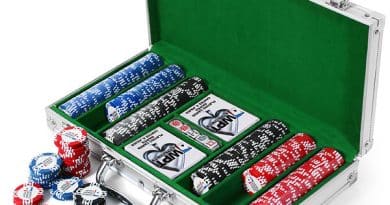Things You Can Do With Rose Water
Despite its easy availability and cost-effectiveness, the virtues of rose water are often underplayed. Rose Water holds an important place in aromatherapy and spa treatment but it can have many more uses if given a place on the dresser or the kitchen!
The aroma of rose water stimulates our sensations and relaxes the mind. It is one scent that never goes “out of fashion” because it is essentially the scent of nature. The Egyptians were the first to discover the versatile uses of rose water. Essential rose oil is said to have aphrodisiac effects and it was used by none other than the timeless beauty Cleopatra to seduce her lover Anthony.
She bathed in a tub brimming with ass’s milk and rose petals to lend that infamous glow to her skin. While in modern times, we may not be able to indulge in such luxuries, we can certainly accommodate this magical elixir in our health and beauty regime.
In Indian culture, rose water is used on all auspicious occasions and on alters because of its cleansing properties and soothing aroma. It is widely used in Indian and Mediterranean cuisines, especially in sweets and desserts owing to its reputation as a digestive agent.
Many exotic desserts like the Arabic Muhallabia, the Greek Pastries, and the Indian Rasgulla are all enhanced with the delicate flavor of rose water. Although it may take an acquired taste, rose water can be used to flavor common everyday consumables like milk, cereal, fruit-juices, and custards (let your imagine take over…).
Preserved rose petals are widely used in the Indian “Pan”- a betel leaf stuffed with natural mouth fresheners and flavorings to be served after meals to aid digestion. A rash of rose water in lemonade can work wonders for a disturbed gastric system and can also be used as a refreshing summer drink.
Rose water is also a natural anti-inflammatory tonic and can be applied as a topical treatment for sunburns and allergic skin. A few capfuls of rose water in bathwater work as well as aromatherapy and leave you smelling fresh and feeling rejuvenated.
Rose Water can be mixed with home-made and powdered face packs to tone the skin and clear it of blemishes. Even by itself, it makes for a great natural toner- especially when refrigerated and dabbed over the face in hot summers. It can be used in combination with different ingredients for different skin types:
For oily/acne-prone skin: Mix rose water with some fuller earth and a few drops of lemon juice for a deep-pore cleansing treatment. Leave it on till it dries and wash it off with cold water.
For Dry Skin: Mix together rose water, milk and honey with some oatmeal to form a paste and use it as a nourishing face pack.
For sensitive skin: If you find your skin rough and itchy even after using the most expensive products, try moisturizing it with a mixture of rose water and glycerin in equal proportions. It soothes the skin and clears blemishes too!
For Normal Skin: Add rose water to any fruit based pack with some honey for a natural glow.
The effects and goodness of Rose water are enhanced only when it is unadulterated. In all right, the genuine product ought to be pure and undiluted, not containing any preservatives, additives or synthetic ingredients. To get rose water in its purest form, it may also be made at home, though it is a tad time consuming and tedious.
Boil rose petals in a container and distill the vapor in a clean, sterilized bottle. Make sure the roses used are organically grown without ant pesticide or chemical fertilizers as these will ultimately end up on your face and stomach.
The Rose has forever been a symbol of beauty and exotica. What could be better than being able to absorb its goodness without owning a rose garden and in the comfort of your home? Rose water is one of the few products that are effective, versatile and don’t burn a hole in your pocket. Keep a bottle handy and enjoy its natural and holistic value. Sooth your senses with the aroma of roses and lose yourself in their blissful element.



